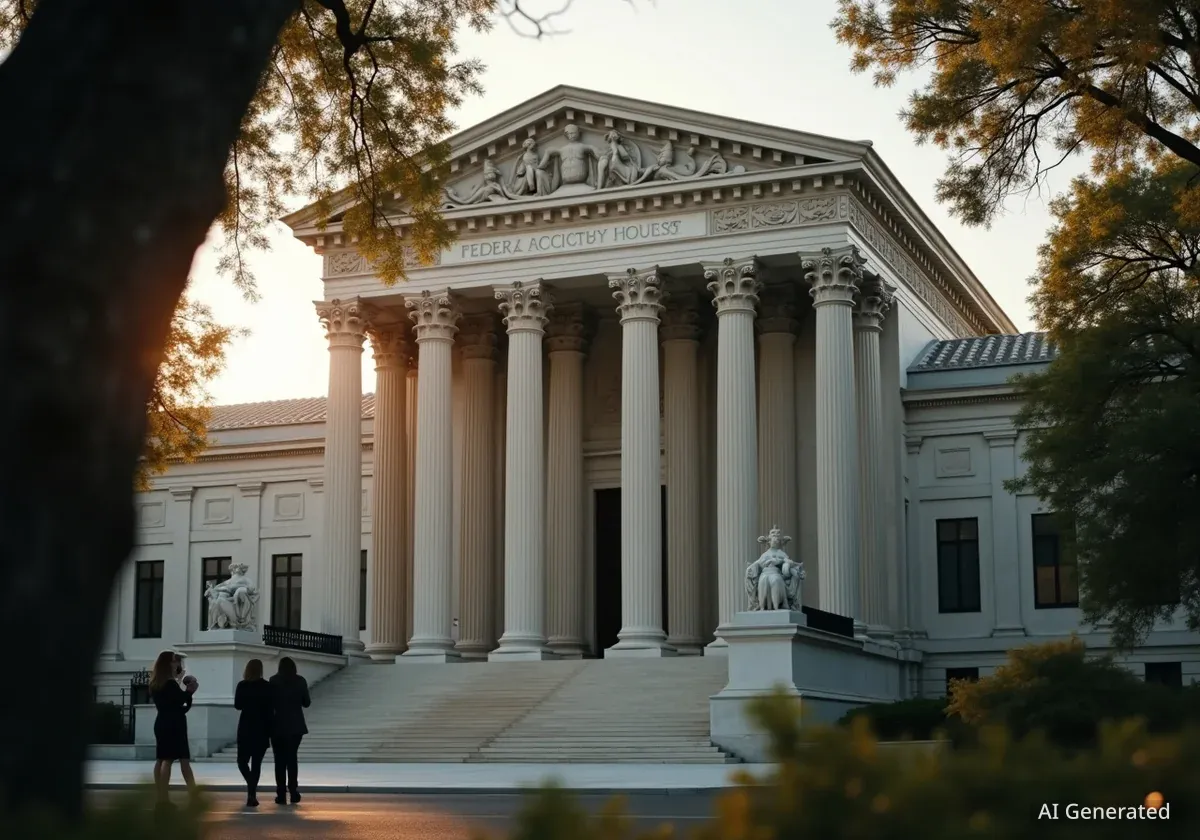A former teacher's assistant in South Carolina has filed a federal lawsuit against Spartanburg County School District Five, asserting she was unlawfully terminated for comments made on her private Facebook account. The lawsuit claims the school district violated her constitutional rights to free speech when it fired her over an off-duty post concerning conservative activist Charlie Kirk.
Key Takeaways
- Lauren Vaughn, a former teacher's assistant, filed a federal lawsuit against Spartanburg County School District Five.
- She was terminated on September 15 after making a post on her private Facebook page about Charlie Kirk.
- The lawsuit argues the termination violates her First and Fourteenth Amendment rights and South Carolina law.
- Vaughn's post was made outside of work hours on a personal device and was visible only to her Facebook friends.
Lawsuit Filed Against Spartanburg School District
Lauren Vaughn, who previously worked as a teacher's assistant, has initiated legal action against her former employer. The complaint names Spartanburg County School District Five, its board of trustees, and Superintendent Randall R. Gary as defendants.
The core of the lawsuit is Vaughn's termination on September 15, which she alleges was a direct result of a social media post she made five days earlier. According to legal documents, the district's decision to fire her was based on this off-duty activity, which Vaughn argues is protected speech.
Details of the Social Media Activity
The incident began on September 10, when Vaughn posted on her personal Facebook account. The lawsuit emphasizes several key facts about the post: it was made using her own device, outside of her work hours, and her account's privacy settings were configured so that only her approved "friends" could see the content.
Her post was a comment on the death of Charlie Kirk and his stance on the Second Amendment. In subsequent comments, Vaughn clarified her position, aiming to express sympathy rather than malice.
"[T]he WHOLE point here is that any time someone is killed fits [sic] a tragedy. Even someone I may not like. Even someone I disagree with. But instead of accepting it, why don’t we do something about it?"
The lawsuit states she further explained her feelings, writing that she felt "no satisfaction here. Just heartbreak for anyone and everyone affected by gun violence and a hope that one day, enough will be enough."
Private Post, Public Consequences
The legal filings highlight that Vaughn's social media activity did not mention her employer, her specific school (River Ridge Elementary), or her job responsibilities. The post was not directed at any district personnel and was not accessible to the general public.
District Policy at the Center of Dispute
The school district reportedly justified the termination by citing its official social media guidelines. These guidelines instruct employees to remain "respectful and professional in all communications by words, image, or other means."
Vaughn's legal team, from the Columbia and Greenville-based firm Burnette Shutt & McDaniel, argues that this policy is overly broad and unconstitutional. The lawsuit challenges both the termination itself and the validity of the social media policy under which it was executed.
Legal Grounds for the Lawsuit
The lawsuit claims the district's actions are invalid under several legal frameworks:
- The First Amendment: Protecting the right to free speech.
- The Fourteenth Amendment: Ensuring due process and equal protection under the law.
- South Carolina Law: Specifically citing a wrongful discharge violation related to S.C. Code Ann. 16-17-560, which pertains to threatening the life of a public official.
A Case with Broader Implications
This legal challenge in South Carolina is not an isolated event. It follows a series of employment terminations across the country where individuals have been fired for making public or private comments about the assassination of Charlie Kirk in Utah earlier in the month.
However, Vaughn's lawsuit is reportedly the first of its kind to be filed within South Carolina on this specific issue. The case raises significant questions about the extent to which public school employees' off-duty, private speech can be regulated by their employers.
The outcome could set a precedent for how school districts in the state and potentially nationwide manage employee social media use, balancing institutional interests with individual constitutional rights. The case will be closely watched by legal experts, educators, and civil liberties advocates.





